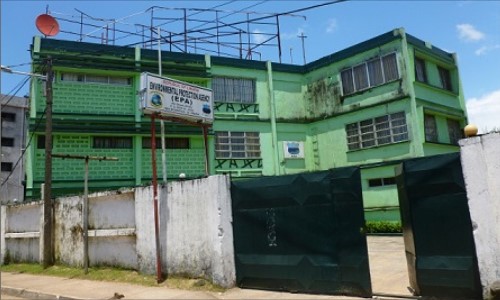EPA, stakeholders validate environmental report

Technicians from the Environmental Protection Agency of Liberia (EPA) and stakeholders have validated the State of the Environment Report (SoER) and National Environmental Action Plan (NEAP) for the Republic of Liberia.
The validation of the documents, which began here Tuesday, June 23, via zoom due to health restrictions caused by COVID-19, end Wednesday, June 24, 2020. The SoER and the NEAP were developed under the Liberia Forest Sector Project (LFSP) with funding from the Government of Norway.
EPA Acting Executive Director, Randall M. Dobayou said the report aims to evaluate the most pressing environmental challenges by considering key environmental resources and their state and trends. Mr. Dobayou said the SoER seeks to bridge a gap in what is believed to be a lack of proper scientific data on environmental trends in Liberia and resulting management tools.
“Providing some of this needed data, this State of the Environmental Report (SoER) for 2007-2020 and its National Environmental Action Plan (NEAP) for 2019-2023 have been developed for Liberia’s Environmental Protection Agency (EPA),” he said. He said these reports were compiled by various specialists, ranging from ecologists, waste specialists and social scientists.
Specialists who contributed to the SoER and the NEAP saw the task as their responsibilities to gather data that accurately describe each environmental state and trend with no impartial view or obstruction, the Acting EPA Executive Director noted. The NEAP, according to him, is based upon findings presented in the SoER; the latter which provides an assessment of the status and trends of the environment and its natural resources, and their effect on the wellbeing of the country’s population.
Once in every five years, there is a nation-wide study carried out to establish the state of the environment, as well as to develop a five-year NEAP to guide the government in managing its environmental resources. The preparation of the SoER and NEAP is largely participatory, drawing knowledge and resources from lead agencies, development partners, research institutions and Civil Society Organizations (CSOs) amongst others. Editing by Jonathan Browne




















